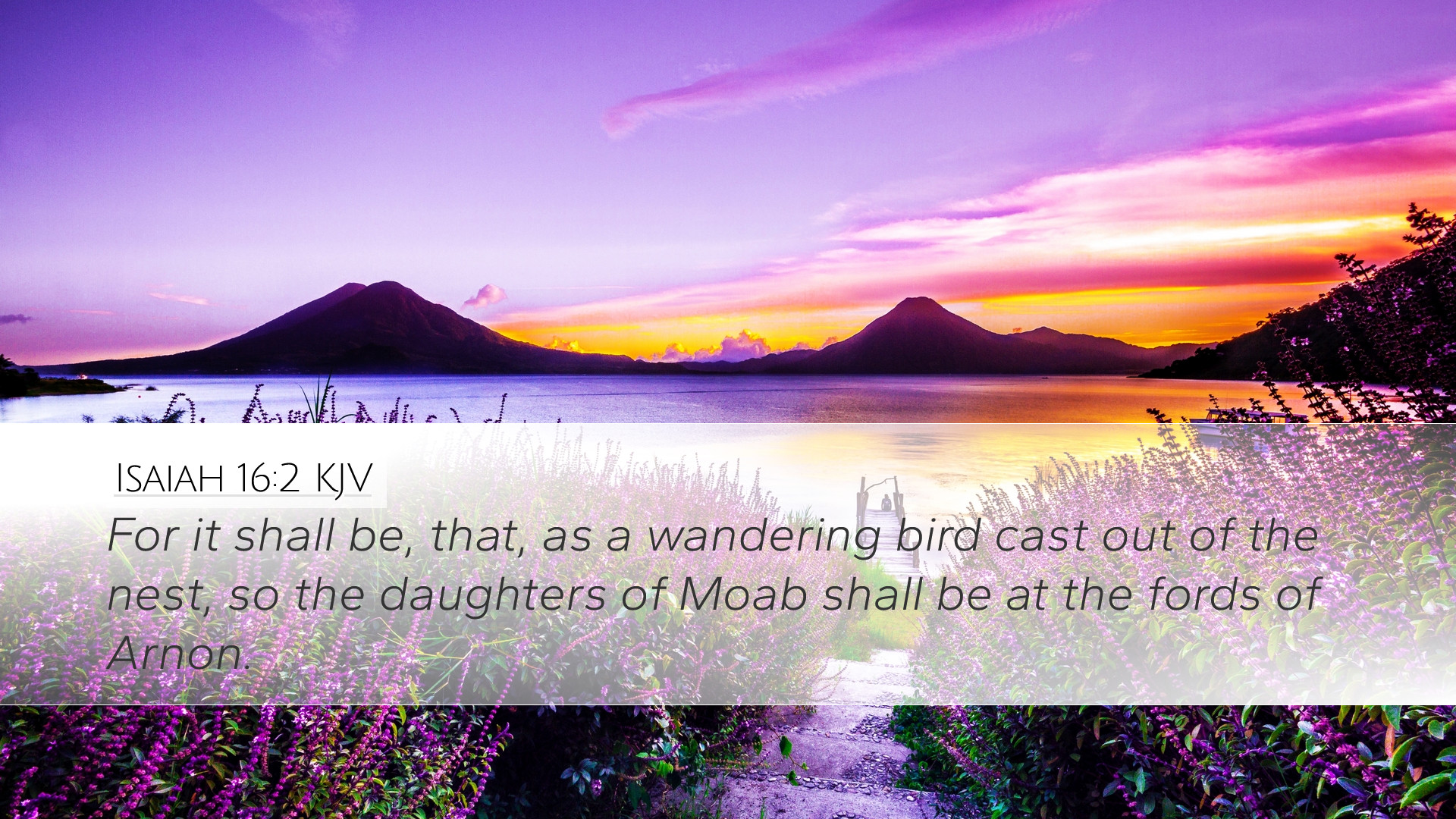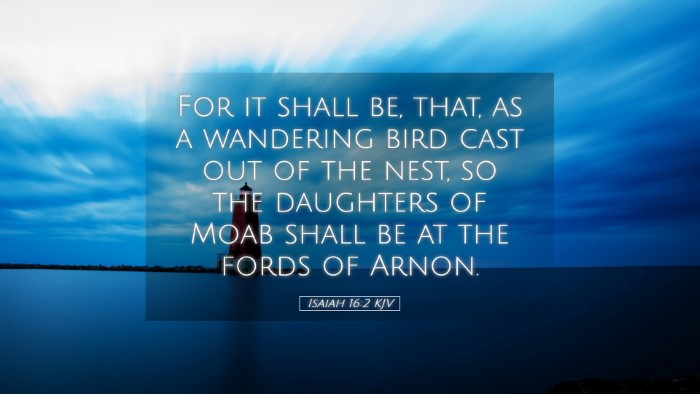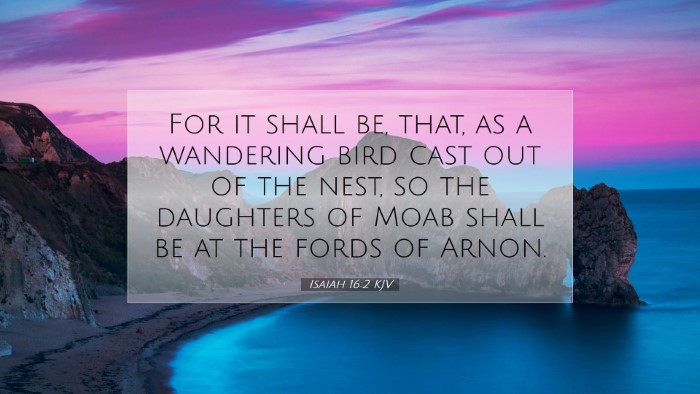Commentary on Isaiah 16:2
Verse Reference: Isaiah 16:2 - "For it shall be, as a wandering bird cast out of the nest, so the daughters of Moab shall be at the fords of Arnon."
Introduction
Isaiah 16:2 provides a poignant metaphor that encapsulates the plight of Moab and its people. This verse serves as a reflection on the consequences of political dynamics and divine judgment. Drawing from public domain commentaries, we will explore the multifaceted layers of meaning contained within this verse.
Contextual Analysis
Historical Background: To fully grasp the significance of this verse, it is essential to understand the historical context in which it was written. The Moabites, descendants of Lot, had been at odds with Israel, often finding themselves in antagonistic positions. Isaiah's message comes during a period when Moab faced impending doom due to the Assyrian threat.
- Political Instability: Moab was experiencing significant political upheaval, which Isaiah contextualizes in a way that illustrates their vulnerability.
- The Divine Judgment: This verse forms part of a larger oracle concerning Moab, highlighting God’s sovereignty over nations and their destinies.
Metaphorical Significance
The metaphor of a "wandering bird" evokes a sense of abandonment and helplessness. The imagery plays on several themes:
- Vulnerability: Just as a bird without its nest is exposed to various dangers, Moab is depicted as exposed to threats from outside forces, particularly the encroaching Assyrians.
- Loss of Home: The nest symbolizes safety, identity, and security. As Moab is cast out, they lose their sense of belonging and stability.
- Desperation: The use of "wandering" suggests that the Moabites are lost, lacking direction in their fearful state.
Theological Implications
Divine Providence: This verse reveals God's providential guidance, illustrating that nations, like individuals, fall afoul of divine will when they stray from righteousness.
- God’s Judgment: Isaiah’s prophecy serves as a reminder to both Israel and Moab of God’s power in determining the fate of nations.
- The Pursuit of Holiness: The plight of Moab serves as a cautionary tale regarding the pursuit of foreign allegiances and the neglect of faithfulness to God.
Reflections from Commentators
Various commentators provide rich insights that delve deeper into the verse:
Matthew Henry
Henry emphasizes the state of desolation that comes upon Moab, likening the division and dispersion among them to that of a bird with no rest. He highlights God’s sovereignty in their downfall, reminding us that divine judgment often results from the arrogance of nations. Moab's flight is not merely physical but a spiritual metaphor for the consequences of rejecting God.
Albert Barnes
Barnes interprets this verse as indicative of Moab’s desperation, noting the reference to "the fords of Arnon" as critical junctures of escape or safety. He asserts that the Moabites are portrayed not just as fleeing but sitting at these fords in a state of anguish, pleading for refuge amidst their circumstances. He contextualizes their fate within the larger narrative of impending judgment, illustrating how this was a form of God’s retribution against their past actions.
Adam Clarke
Clarke provides a theological lens, reflecting on the spiritual implications of the imagery of the wandering bird. He posits that the Moabites, through their infidelity and disobedience, became like this bird—isolated and vulnerable. Clarke’s commentary also touches on the universality of this plight, urging readers to grasp the woodland significance of remaining faithful and secured in God amidst tumultuous times.
Practical Application
For contemporary readers, Isaiah 16:2 carries critical lessons:
- Understanding Our Nest: Believers are encouraged to recognize the spiritual ‘nests’ God provides—community, worship, and faith—as vital to their spiritual integrity.
- Seek Refuge in God: Just as the Moabites were depicted as longing for safety, congregants today should seek refuge in God amidst life’s storms.
- Reflect on the Consequences of Disobedience: The state of Moab serves as a reminder that straying from God’s teachings leads to desolation and despair.
Conclusion
Isaiah 16:2 stands as a striking reminder of human vulnerability and the faithful sovereignty of God. The metaphor of the wandering bird encapsulates a profound spiritual truth about exile, safety, and divine judgment. As pastors, students, theologians, and scholars reflect upon this text, may they be inspired to seek a deeper understanding of God’s providential care and the importance of maintaining a steadfast relationship with Him amidst the trials of life.


